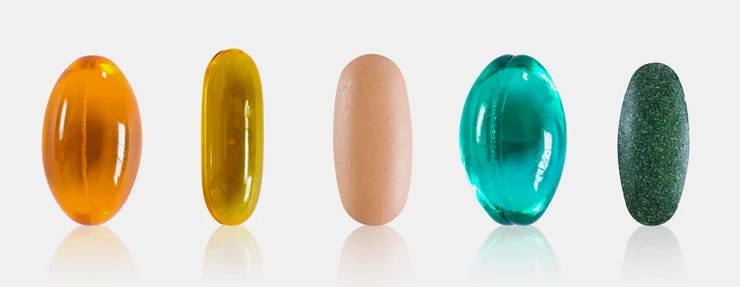Miracle Vitamin D- What You Need to Know by Christie Korth, Health and Wellness Director
Vitamin D is a fat soluble vitamin which has many functions in the body and is hailed by most nutritionists. For today;s purposes- Did you know that up to 80 percent of COVID cases (and many other illnesses, including cancer) are from a lack of vitamin D? Another common issue is that vitamin D MUST be taken with Vitamin K2 in order for it to absorb properly. If Vitamin D is taken alone, without it's friend K2 taking it is like pouring water over a rock. Contrary to popular belief and due to extremely antiquated RDA's in times of illness, I recommend up to 10,000IU per day, particularly if you are deficient.
Benefits of Vitamin D:
Helps:
Optimize calcium metabolism
Optimize phosphorus metabolism
Prevent type 2 diabetes, insulin resistance, high blood pressure, heart attack, congestive heart failure, and stroke
Prevent falls and muscle weakness
Prevent osteoporosis while maintaining bone integrity
Regulate insulin activity and blood sugar balance
Regulate immune system responses
Regulate muscle composition and muscle function
Regulate blood pressure
Lower risk of excessive inflammation
Lower risk of some bacterial infections
Support cognitive function, especially in older persons
Support mood stability, especially in older persons
Prevent chronic fatigue
Prevent the following types of cancer: bladder, breast, colon, ovarian, prostate and rectal
Signs of Vitamin D Deficiency:
Muscle aches and muscle weakness
Frequent falls, particularly among older persons
Bone pain, frequent bone fractures, or soft bones
Stunted growth in children
Asthma in children (especially severe asthma)
Impaired cognitive function, especially among older persons
Lowered immunity
Chronic low energy and fatigue
Depression, particularly among older persons
Presence of any autoimmune disorder
Lack of exposure to sunlight for any reason, including geography, use of sunscreen, or wearing of protective clothing
Foods High in Vitamin D:
Wild Caught Salmon
Wild Caught Sardines
Wild Caught Shrimp
Cow’s milk, Cod, Egg
Dark green leafy vegetables
Ideally, you want to consume any vitamin through food first and then supplement should you require extra. Remember, the very best way to obtain Vitamin D is from the sun! Get out into that sunshine! Just 20 minutes per day will keep your vitamin D intact. Be sure to go without sun block for short periods of time, as it blocks absorption. As does glass, if you are like me and like to sit in a sunny window, the vitamin D can not penetrate through. So, be sure to get outside and get some sunshine on your face daily.
Until next time,
Christie <3



